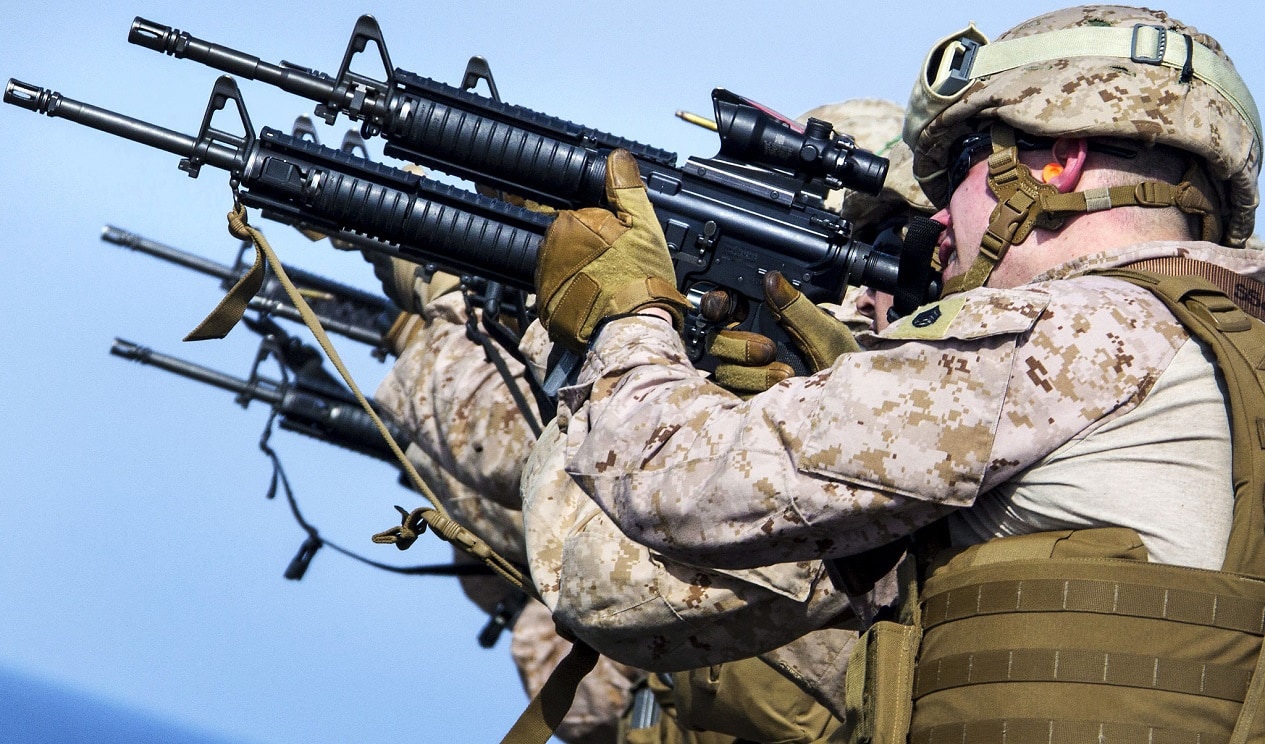Brent M. Eastwood

British media reported last week that their Royal Marines “dominated” an October war game in California against a unit of the U.S. Marine Corps. But is that what really happened?
The Royal Marines reportedly did leverage some effective unconventional tactics like wearing U.S. uniforms and using store-bought scanners to listen in on American communications. The training was supposed to test unconventional tactics, so the Royal Marines did an excellent job in that respect. But U.S. Marines say there was no evidence of a “surrender.”
The Media Makes It Sensational
First, let’s get the point of view and perspective from the British media about this training exercise.
The five-day Green Dagger war game pitted a regiment with elements of two battalions of U.S. Marines’ regular infantry versus a force named 40 Commando. These were British Royal Marines and allies operating at Twenty-Nine Palms, California in the Mojave Desert. Sky News said the Royal Marines won a glorious victory by forcing U.S. Marines to surrender. The UK Daily Mail said that U.S. Marines cried for mercy and asked for the mock battle to be “reset.”
It Looks Like the Royal Marines Had a Good Time
The Royal Marines were also incorporating multinational forces on their side. Some troops from Canada, the Netherlands, and the United Arab Emirates were mixed in with the Royal Marines. Asia Times claimed this British force held 65 percent of U.S. territory during the decisive point of the war game and notionally “destroyed” American equipment.
It wasn’t just British media ripping the U.S. Marines – Business Insider also lauded the Royal Marines’ performance. The American outlet quoted a Royal Navy statement that said, “Royal Marines won decisive battles early on and gained ground from their enemy, but, with the US Marines pushing into allied territory, Royal Marines and their allies carried out raids behind enemy lines to stop further counterattacks.”
There’s Another Side to the Story
American marines told a different story, according the Coffee or Die Magazine from the U.S.-based Black Rifle Coffee Company and Marine Corps Times and Military Times. A Marine public information officer had an alternative view of the training event. According to Military Times, ‘Winners’ are never determined,” Capt. Zachary Colvin, told the outlet. “This exercise does not provide an opportunity to ‘surrender,’ ‘keep score,’ or ‘reset.’ The objective of the exercise is to heighten unit performance and increase readiness.”
Both Groups of Combatants Did Some Things Well and Other Things Not So Well
This episode is probably more of a nothing burger than a “decisive victory.”
This was a simulation, and it appears that the Royal Marines did indeed perform gallantly in an unconventional manner, which is their job. They should be proud of going into a desert on another continent and showing off their capabilities.
But it doesn’t mean they “won.”
War games in the U.S. military have an “after-action review and debrief,” in which they look at things that went well and examine tactics that went poorly. The British likely do something similar at the end of their exercises. This is beneficial to both sides, even if one side performs better than the other. In terms of the media, it makes for good headlines and sensational copy.
But what really happened in the simulation is less than remarkable and many media outlets did not capture the full story in the first place.
No comments:
Post a Comment